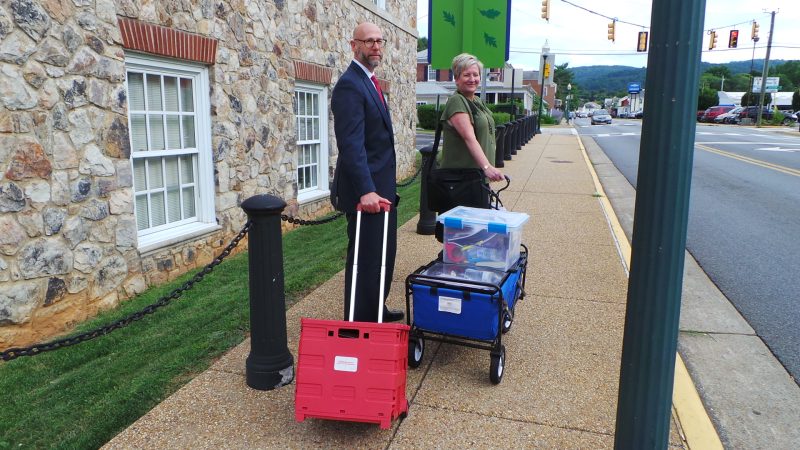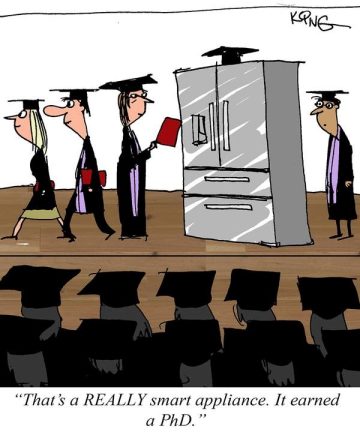An Meine Enkelinnen (To My granddaughters)
I am compelled by the tenor of our times. I am compelled by the fact that you are flesh of my flesh, bone of my bone. I am compelled because time is precious. I am compelled because I love you.
I must share with you or forever regret that I failed to do so.
First, I must remind you of my bona fides, that is, the documentary evidence of my legitimacy, my credentials. Your professors call this Curriculum Vitae. It’s how they explain the alphabet soup they place following their names.
Most professors offer you the vegetables of their personal garden plots. Doctoral dissertations. Masters theses. Few, if any, of these academics can match my bona fides.
My sources are what I have seen and experienced, in situ, that is, in and within its original place. My sources are street-level, nitty-gritty, real people who lived with and during socialism, communism, and national socialism. I spoke, and still speak, face-to-face with these people. I dined with them. I lodged with them. I went to their weddings and their funerals. I wept with them and laughed with them. I went with them into their churches, their schools. I worked and sweat with them. Picked mushrooms in the forests with them. I shopped with them. Played cards and chess with them. I learned their language, their history, their culture.
So, damn it, when I tell you what I know about socialism, communism, and national socialism, listen to me!
Your professors can lecture you on Engels, Marx, Hegel, Trotsky, and Lenin. That’s their turf. I, on the other hand, offer you a reality check. Consider this: if I throw an apple to break a window, does that rob all apples of nutrients? Ought we campaign to remove all apples from the grocer’s shelves? Alas, this is the flaw in the writings of Engels, Marx, and the rest. I won’t argue whether these scholars observed abuse at the hands of some they called capitalists. But we don’t behead a sick hen in the attempt to cure her! At least not if we wish to continue having eggs. This is likewise the very illogic indulged in by many who today call themselves progressives or liberals and seek to cure our ills with socialism. They speak of utopian dreams. I reduce those dreams to hard facts.
Let’s start with hard fact number one. Let’s say I apply to an apple a sticky-label reading “banana.” Does the apple become a banana? Of course not. And the same is true with the label “socialist” and, for that matter, “communist.” If I label an autocracy as socialist, it remains an autocracy. Likewise true for a communist state labeled “Democratic Republic.”
Have I ever seen a communist country bearing the label “Democratic Republic”? Well, yes, as a matter of fact, I have! I have even traveled to and within such a place. The German Democratic Republic. That happens to be the place your grandmother Josefine was born.
Problem is, only one word of that label was true. It was German. But it most assuredly was not democratic. Nor was it a republic.
The point here is that just as we cannot judge a book by its cover, neither can we judge a country by its label. We have to examine how it behaves and what it does. Only then can we decide what it is.
Speaking of labels and terminology, stop for a moment and reflect on these questions:
What is the difference between an oligarchy and an autocracy?
Who has greater prestige – the proletariat or the bourgeoisie?
How does socialism differ from communism?
Is one better off being an Apparatchik or being a Politburo member?
Is the United States a democracy? Or, is our country a republic?
What is the meaning of the suffix “cracy”?
If you can answer these questions with ease, thank your high school teacher or your college professor. If, on the other hand, you struggle with any of these, your professors may not be worth their paychecks.
Now, let’s get back to labels. And some facts.
Russia was not a communist country. But it was an oligarchy hiding behind the label of communism. Had it been communist, it would have been a classless society. But it wasn’t, and still isn’t. Those at the helm of leadership and most of their apparatchiks had privileges not available to the rest of society. They had special stores where they could buy Western products. They had private country villas (dacha — a country house or cottage). They drove quality cars – the Volga rather than the Lada. The working-class rode — and still ride — street cars, buses, and subways.
Definitely not classless. The oligarchs lived a lifestyle several notches above that of the commoners. “But they have elections,” you might say. True, but their elections are like crystal selling for the price of diamond. Later we’ll examine detailed facts about elections in Russia, Cuba and Iran. But for now, ponder, please, on this:
2018 – Vladimir Putin, President (Prime Minister is Dmitry Medvedev)
2012-2018 Vladimir Putin, President (Prime Minister is Dmitry Medvedev)
2008-2012 Vladimir Putin, Prime Minister (President is Dmitry Medvedev)
2000-2008 Vladimir Putin, President
This exercise of musical chairs is oligarchy at its most brazen. And what your professors likely do not tell you is this: Executive power in each of these political dances always remained with Putin. When Medvedev was president, the office was ceremonial head of state, while the office of prime minister under Putin wielded executive power.
What I most hope you will discern is how people who seek power will abuse labels – sort of the wolf in sheep’s clothing – to gain control over others. Hopefully, once adequately informed, you can avoid buying into the deceit offered by those who choose to ignore, or hide, reality.
So let’s take a closer look at elections. What I am about to reveal to you is true for Russia, China, and Cuba to mention only three. But it also is true for Iran. Iran? Yes, but the labels are different. A hammer remains a hammer even when it has a religious label!
I don’t wish for this essay to grow to the 560 pages of Marx’s Capital, so I’ll be concise. I’ll focus on common denominators to put it arithmetical terms. Let’s start with a few quotes from sources you might recognize. These folks are telling you what I – as noted earlier – already know because I have seen and witnessed these events over a period of years.
First this from Cuba’s most recent election:
“If the Cuban Communist Party — the only party allowed to participate in elections under the one-party regime….”
“The 86-year-old Castro will remain head of the Communist Party, which is designated by the constitution as ‘the superior guiding force of society and the state.’ As a result, he will still be the most powerful person in Cuba for the time being.”
“As in Cuba’s legislative elections, all of the leaders selected Wednesday were picked by a government-appointed commission. Ballots offer only the option of approval or disapproval and candidates generally receive more than 95 percent of the votes in their favor.”
And now this from Iran’s most recent election:
“The Supreme Leader — currently an ultra-conservative cleric named Ayatollah Ali Khamenei — helps appoint the Guardian Council, an unelected panel of conservatives that decides who gets to run for president (and who doesn’t). Many popular reformist candidates have been disqualified from running in recent elections.”
“But not everyone is allowed to take part. The guardian council, a powerful body of six clergymen and six jurists, vets each candidacy. Political competence and loyalty to the fundamental principles of the Islamic republic and its religion are among the main issues considered by the council. This year, out of more than 1,600 who applied to run, only six candidates were accepted.”
Not too difficult to spot common denominators, eh? Single party, government appointed commission, only “vetted” candidates permitted. And, yes, the labels vary, but this process is the same for Russia and China.
Do you really need arithmetic now to grasp why candidates in these –and other such – countries receive 95% of votes cast. (Okay, sometimes for appearance sake we’ll see only 75% or so. That usually means that only 75% voted, not that 25% voted for another candidate. After all, there was no other candidate.)
Now let’s shift our attention to economics.
You may notice I’ll be making little distinction here between communism and socialism when it comes to economics. That’s because it’s sort of a Fifty Shades of Grey thing. What one calls state ownership of the means of production, the other calls social ownership and workers’ self-management of the means of production. With Cuba, it’s blatantly black-and-white. Not much grey. Here is how the New York Times puts it:
“The Cuban military, through its conglomerate Gaesa, owns the vast majority of firms that operate engaged [sic] in trade, from hotels to foreign exchange houses to ports, which gives it control of up to 60 percent of incoming hard currency. Any economic reformer knows that breaking a monopoly is difficult, even more so if the monopolist also holds power over arms and intelligence. Cuba’s military is committed to not just one-party rule, but also, it seems, to one-firm economics. And because Cuba’s economy is so closed, the private sector is small and weak.”
Just for emphasis if not for clarification, I would add this: Cuba’s military and Cuba’s communist party is a symbiotic relationship so tightly bound it could pass for a Möbius strip.
But let’s get to the point here. When we speak of socialism/communism, we must clearly discern its effect on a nation’s economy. Otherwise, we are simply fooling ourselves. Or, we are allowing ourselves to be fooled. Take your pick.
Here the Chicago Tribune puts it well:
“He (Castro) has failed to fix the generally unproductive and highly subsidized state-run businesses that, along with a Soviet-model bureaucracy, employ three of every four Cubans. State salaries average $30 a month, leaving workers struggling to feed their families, and often dependent on corruption or remittances from relatives overseas.”
Don’t allow the arithmetic to slip past you here. A whopping 75% of Cubans earn an average of $30 a month. Keep that in mind as adherents of socialism in our country block your view with labels!
Speaking of $30 a month, allow me to share with you how and where I learned about the “benefits” of socialism. In this case “democratic socialism.” That’s a blended system. Seen in such places as Sweden, Norway, and Denmark.
So, what do I know about Socialism in Denmark? Well, I lived and worked side by side with two Danes for a full year. In a place called Thule. Owing to periods of 24-hour darkness and others of 24-hour daylight, there’s plenty of time for chatting. Their names were Michael Lindblad and Lars Norgard and what they had to say astounded me, then and still does today.
Unlike the Americans who spent a year at Thule (a U.S. Air Force Base not far from geographic North Pole, which itself was not far from North Magnetic Pole) many Danes remained living and working at Thule for 10, 15, or 20 years before heading back to Denmark.
One day I asked Michael and Lars why they stayed so long at Thule. They explained it was because of taxes. As long as they worked at Thule, their income was 100% tax-free. And that made a lot more sense when they added the rest of the story. Danes back home paid taxes of 60% on their income. Sixty-percent! Reverse that and you’ll see that Danes receive only 40% of their income. For every 10 hours of work they’d receive 4 hours of pay.
Do I need to tell you more about Socialism? I will, because there’s much more to tell. But keep this image in mind. It’ll be useful as we progress.
Progress. That’s an interesting word. It can be a noun. It can also be a verb. Notice the shift in sound. What we need to notice is that progress, in the sense of productivity, is what suffers first and most when socialism (or unions) change the emphasis of a company from creating and producing widgets to creating and fostering a social agenda for the workers.
Here’s what happens. A company is founded by one or more investors. These folks invest cash to launch the company. They do so in a quest for profit. That’s not evil, by the way. Especially when investors use profit to build more companies. More workers have jobs.
Okay, so that’s a brief primer on free enterprise, also known as capitalism. (Investors put up the capital. They also shoulder the risk of failure.) Investors fund research and development. When it’s time to produce widgets (my term for any product), the company hires people. Then the buzz begins. Investors purchase raw materials. Transportation enters the picture. Company work staff assembles and finishes the widgets. Transportation reenters the picture. Move the widgets from the factory to the marketplace.
And so it goes. Until? Well, until we look at the impact of socialism – by whatever label. Now, don’t get me wrong here. I am not saying that labor and management in free enterprise should not identify and address issues to improve the workplace and the workforce. That’s an obvious win-win for all concerned. The issue is a matter of responsible balance. In most successful businesses, this practice is already well-established.
The impact of socialism has already been partially addressed. Earlier I mentioned what suffers first and most when socialism (or unions) change the emphasis of a company. There is a shift from creating and producing widgets to creating and fostering a social agenda for the workers. In my Air Force career, we spoke of “time over target,” and in my teaching career we spoke of “time on task.” Both of these referred to the amount of time devoted to a particular task. (Though the Air Force term could also refer to time-of-arrival over target.) So, let’s focus on widgets and the time necessary to produce them.
Here, the number 86,400 comes to mind. That’s the total number of seconds in a day. Now let’s reduce that to a standard 8-hour shift at work in the factory. Now we’re down to 28,800. That’s the number of seconds workers in any factory have to produce widgets. That looks like a hefty number of time until we reduce it to minutes. We have but 480 minutes in that 8-hour shift to produce widgets.
This makes it easier to see the impact of socialism in the factory environment. The first thing we lose is time-on-task. That translates to fewer widgets. And that, in turn, translates to fewer sales. You see where this is going, right?
Socialism (and our own labor unions) bring about a second reduction in both productivity and profit owing to the issue of work incentives. But before departing too far from that word profit, let us keep in mind that it is profit in free enterprise business that allows owner-investors to fund growth in the company. Often, this is overlooked by critics of capitalism.
Now, returning to work and work incentives, allow me to remind you that my source materials for the following are both my own personal experience (labor union) together with the experience of family, friends, and co-workers I mentioned above.
Labor unions reduce productivity in this way: Labor and management negotiate to establish a quota. Let’s say 15 widgets produced per hour per employee. An employee – eager to achieve – produces 20 widgets per hour. This employee will be severely ostracized, cold-shouldered, shunned by fellow employees and especially by the union. Why? First, because the overachiever makes fellow employees appear to be laggards. But more important – to the union – is that owner-management would be encouraged to raise the quota having seen the achievement. But union leaders do not want a quota raised. Why? They want owner-management to hire additional employees. Why? Each union employee pays monthly dues to the union.
We’ll return to the effects of Socialism upon a nation’s economy following this brief segue into labor union realities. Looking solely at the AFL-CIO (a federation of some 56 unions), here are some revealing facts which illustrate the above “why” questions. This federation of unions:
Has 12,475,220 members.
Collects member monthly dues of $112,276,800.
That’s an annual sum of $1,743,321,600.
Pays its top 10 employees an annual sum of $2,413,604.00.
Contributes $1,562,358,840.00 in election donations.
Of these election donations 93.5% goes to Democrat Party.
(I did not “invent” these facts. They come directly from this web page –
And, please, don’t overlook this rather salient detail: That annual sum of employee dues paid is $1.7 billion that would have gone into employee paychecks and into the economy had it not gone to the union! And that’s just AFL-CIO money. If you have a bit more curiosity than a lizard has fur, you might ferret out an aggregate figure for all union dues. I’d be impressed!
Now let’s review those “why” questions:
But union leaders do not want a quota raised. Why? They want owner-management to hire additional employees. Why? Each union employee pays monthly dues to the union.
With this as a means of comparison, not to dollar figures, but to the effects of socialism upon a nation’s economy, let’s dig deeper.
While I know from personal observation and family discussions what follows, I’ll be quoting from a clearly written article. I’ll source the article for you at the end of this section. You might want to read “the rest of the story” to quote Paul Harvey. But let’s begin with these nuggets:
Socialism creates a strong incentive to shirk.
Socialism penalizes industrious behavior.
Socialism rewards sloth and indolence.
Socialism promises prosperity and freedom. But the incentives created by socialism place it in a dilemma. If the workers are allowed to remain “free,” they will not produce. To stimulate production, they must be denied their freedom. Thus, socialism cannot achieve both prosperity and freedom. Usually it results in neither.
This anecdote reveals the conundrum:
Assume that an individual, Clem, is a member of a socialist commune. Assume that there are 1,000 members of the commune and that the output is divided equally among the members. (For the sake of simplicity, we will ignore matters such as capital investment.) Let’s say that the production of the commune totals 100,000 bushels of wheat a year, or an average of 100 bushels per member. At a price of, say, $5.00 per bushel total receipts for the commune are $500,000, or $500 per member. The question is: How is Clem likely to behave? Will he work hard? Will he shirk?
Let’s assume that Clem is both naturally industrious and socially conscientious. He is concerned about the overall good of the commune. As a result, Clem works very hard and increases his production from 100 to 150 bushels of wheat a year. This increases the annual output of the commune from 100,000 to 100,050 bushels. At $5.00 per bushel the income of the commune increases from $500,000 to $500,250. Since total income is divided equally among the members, the income of each member rises from $500 to $500.25 a year. Thus, because of his extra work Clem’s production increased 50 per cent. But his income increased by a mere 25¢ or by 0.05 per cent. Moreover, the income of the other 999 members also increased by 25¢ even though they did not work any harder and their productivity did not increase.
Clearly, Clem’s activities benefited everyone in the commune except himself. Everyone else had his income increase without increasing his work. But Clem’s income increased only 25¢ despite increasing his work load by 50 per cent. While the benefits of the extra production were diffused throughout the commune, the costs were concentrated on Clem.
Poor Clem! He’s no better off than the American union laborer who gets ostracized for exceeding his quota. Hmmm.
But thanks to Clem, we are now in a better position to understand today’s Cuba and this quote:
He (Castro) has failed to fix the generally unproductive and highly subsidized state-run businesses that, along with a Soviet-model bureaucracy, employ three of every four Cubans. State salaries average $30 a month, leaving workers struggling to feed their families, and often dependent on corruption or remittances from relatives overseas.
So, returning to where we began. Your professors can lecture you on Engels, Marx, Hegel, Trotsky, and Lenin. That’s their turf. I, on the other hand, offer you a reality check.
That is what I am compelled to do. Because I love you enough to give a damn!
-30-
Compassion!
It is written:
Feed a man a fish for he has hunger.
Teach a man to fish, he’ll feed himself.
The first sates his hunger.
The second grants him dignity.
The first without the second creates dependency.
The second without the first invites failure.
So, which is compassionate?
Clearly both.



















































































